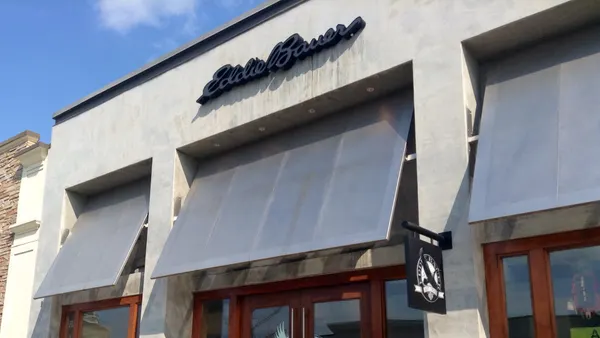Dive Brief:
- PVH, owner of the Calvin Klein and Tommy Hilfiger brands, has tapped Zac Coughlin as its new permanent chief financial officer, effective April 4.
- Coughlin most recently served as the operating and finance chief at DFS Group, a luxury travel retail subsidiary under LVMH Group, and has also served as CFO of Nike's Converse division.
- In a press release, PVH CEO Stefan Larsson praised Coughlin's "strong business acumen, operational capabilities and ability to cut through complexity." Coughlin replaces Michael Shaffer, former PVH CFO and chief operating officer, who left the company in September.
Dive Insight:
Coughlin joins PVH with the apparel seller amid a years-long effort to refocus on its marquee brands, Calvin Klein and Tommy Hilfiger, and as it navigates a complicated, turbulent environment for both supply and demand.
To that end, PVH sold off its Heritage Brands business and intellectual property to Authentic Brands Group last year. Included in that unit were brands with more than a century of history among them, including Izod, Van Heusen and Arrow.
The IP sale followed a move in 2020 to shutter the retail footprint tied to the Heritage Brands business, including Izod and Van Heusen outlet locations.
While shedding those brands means lost revenue, the company views refocusing on its top brands as a profitable go-forward strategy. In announcing the Heritage sale, PVH lowered its revenue guidance but held its earnings guidance.
As Coughlin steps into the CFO spot, his operating background could come in handy as PVH contends with a chaotic environment, characterized not least by supply chain chaos in many areas of the world.
Interim CFO Jim Holmes told investors in December that North America was the company's biggest challenge in terms of supply chain, with air freight expenses and "lower than optimal" store inventory levels, effectively hitting both the top and bottom lines, according to a Seeking Alpha transcript. Holmes also noted that on-hand inventory levels were down by double digits (mid-teens) while in-transit inventory was up 50% because of extended lead times and other supply chain disruptions.
Still, PVH estimated revenue growth of up to 28% for the full fiscal year and for earnings margins (before taxes and interest) to reach pre-pandemic levels, according to Holmes. Notably, the projected growth in earnings margins did not apply to the fourth quarter, in part because of higher freight costs during the holiday season, according to Holmes.















